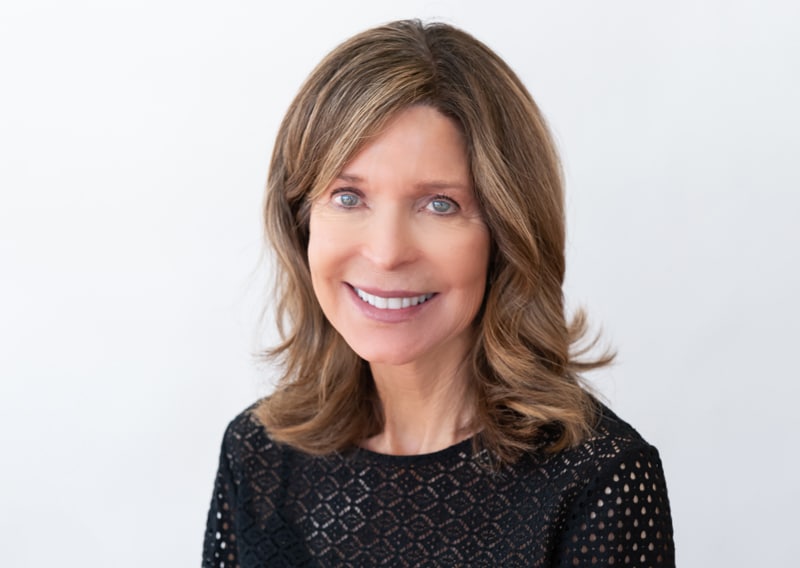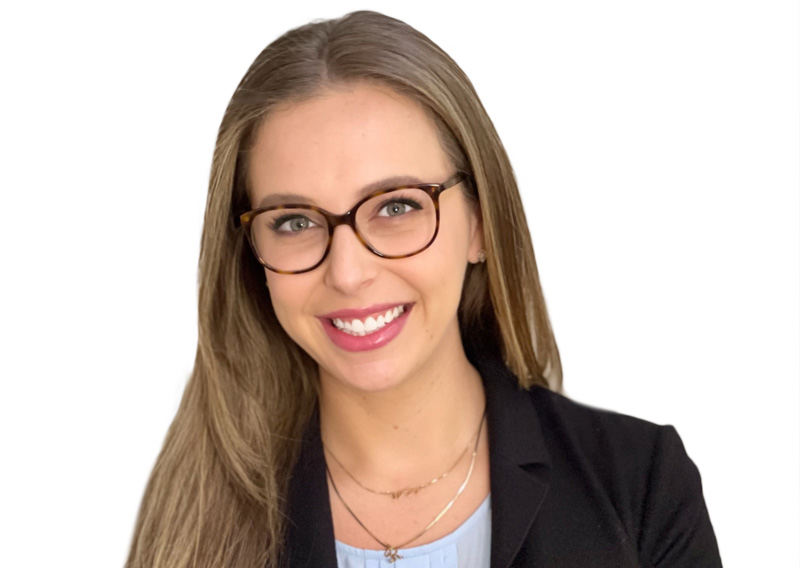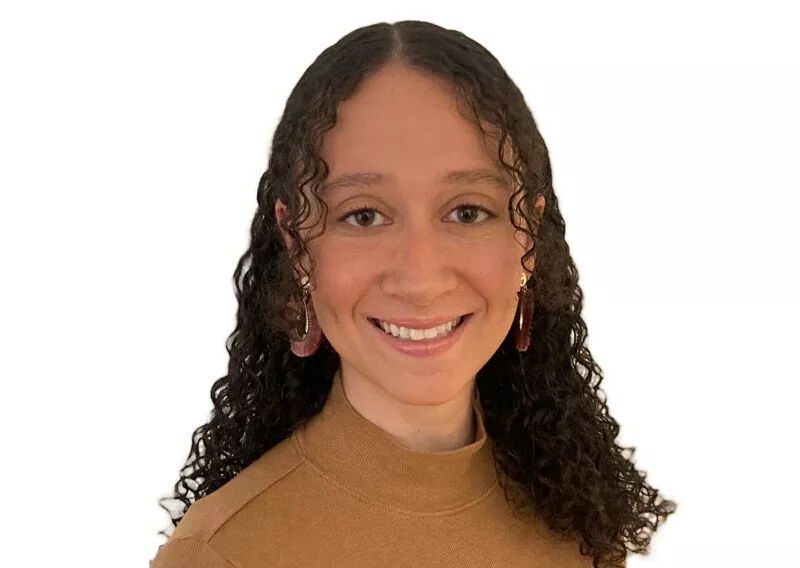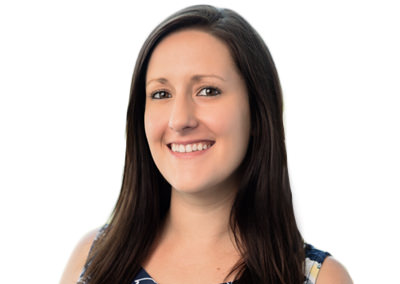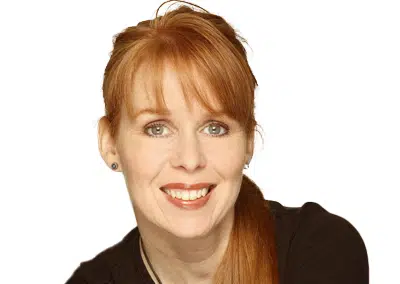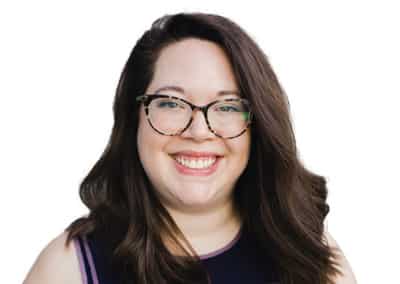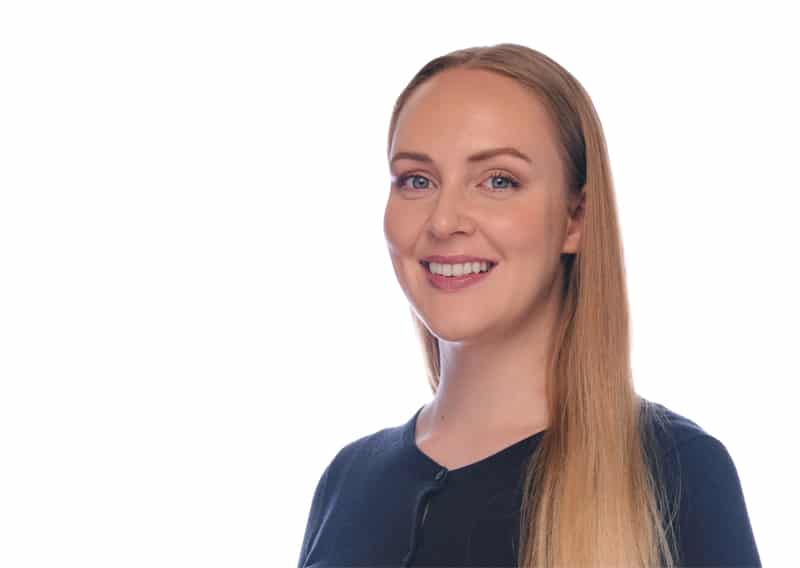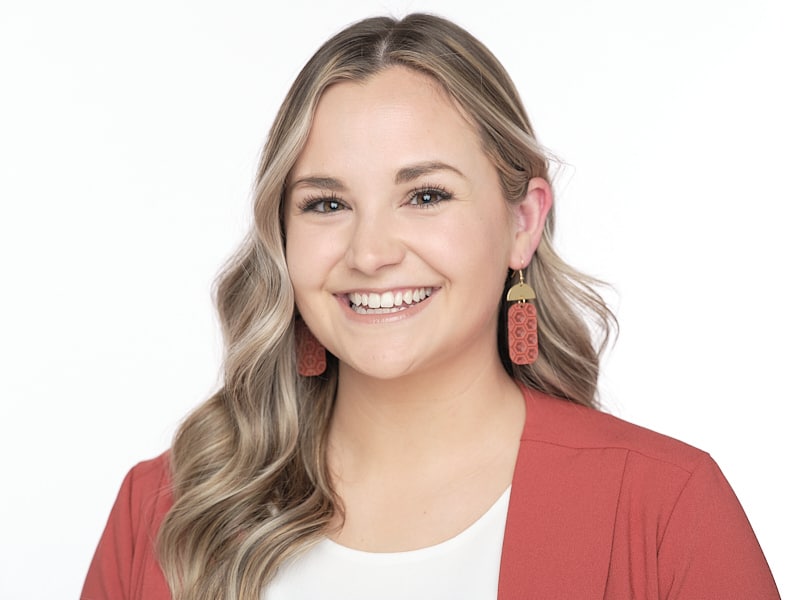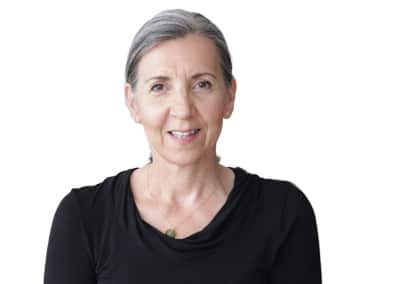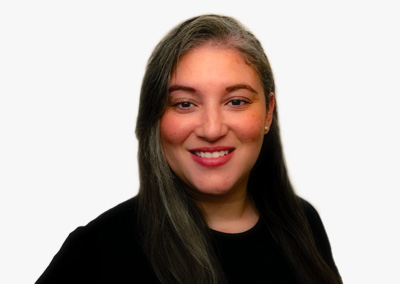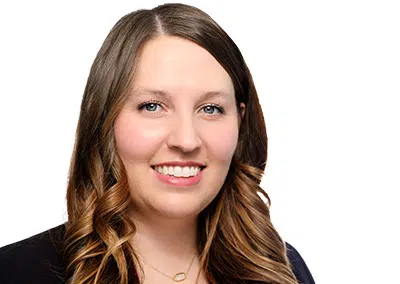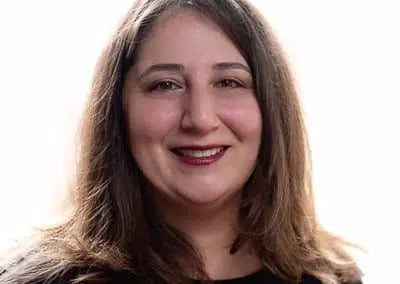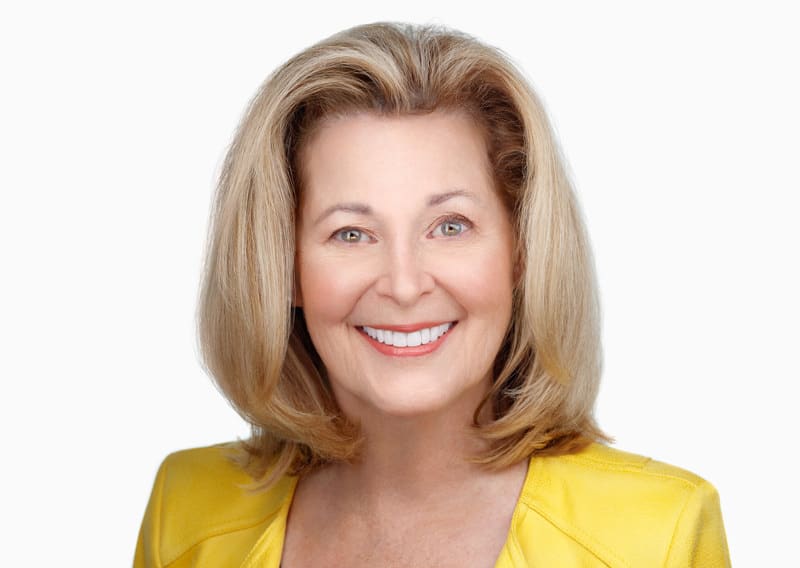
Questions About Therapy:
How to Find a Therapist

Dr. Lisa Marie Bobby is a licensed psychologist, licensed marriage and family therapist, board-certified coach, AAMFT clinical supervisor, host of the Love, Happiness, and Success Podcast and founder of Growing Self.
Now that therapy has become so common, many people are eager to find a therapist of their own. Still, finding a therapist sounds simpler than it is. If you’ve asked yourself the question, “Do I need therapy?” and decided that you do, I’ve put together some advice in this article to help make sure that, whether you’re looking to find a Denver therapist or find a therapist online, you connect with a good one.
Find the *Right* Therapist For You
Getting the support of the right therapist at the right time can be the difference between feeling trapped or stuck and moving forward into the life you want. However, you’ll want to be careful and discerning. Not all therapists and life coaches are the same. Who you work with matters.
Some therapists are well-intentioned, but not qualified to help with your specific issue. Some have great credentials, but won’t have the right personality to click with you. Some are just weirdos. Adding to the complexity, the best therapist for you may be very different than the best therapist for someone else. A big piece of the puzzle to finding your ideal therapist is finding someone whose skills align with your goals.
What Are Your Goals?
The first step in finding a therapist is to get clear (or clear-ish) about your goals. If you’re not exactly sure about what you want or need, that is also okay. Personal growth often starts from a place of nebulous dissatisfaction. Maybe you’re not feeling great about yourself, your self-esteem, your relationship, or your circumstances, but you’re not quite sure why. This is normal! The first stages of good therapy or life coaching are all about helping you figure that out.
However, unless you have at least some clarity about your hopes and what you want to talk about in therapy, it’s easy to get involved with a basic, first-available therapist who may not have the specific training or skill set to be genuinely helpful to you.
For this reason, the first step in finding the right therapist is an inward search rather than an outward one. While your therapy or coaching will help you crystallize your goals, forming a clear idea of what they might be before you even start searching is essential.
To give yourself the best shot at finding your ideal therapist, spend some time answering the following questions:
- “Do I have specific hopes for therapy? If so, what are they?”
- “If my therapy is successful, what will have changed for me?”
- “Do I have a specific mental health diagnosis I need treatment for?”
- “Do I need help in figuring out what I need?” (That is okay too!)
Answering these therapy questions will help you begin visualizing your goals which will give you some direction. Once you have that, it’s time to get educated! There is no shortage of different types of therapy, so you’ll need to do a bit of research about what’s available so you can make an informed decision when choosing a therapist – and we’ll talk more about that later. (These steps are key to avoiding bad therapists, too.)
Let’s Talk.
Schedule a Free Consultation Today.
Where to Find a Therapist?
For most people, finding a therapist starts with an online search of “therapists near me” or “online therapists.” That simple Google search will open the floodgates and likely overwhelm you with options — so many therapists, all with smiling faces and assurances that they’ll provide the help you’re looking for. But how do you even start to sort through the profiles, wade through the alphabet soups of credentials, and find your ideal confidant, mentor, and guide towards happiness?
And we haven’t even mentioned the variety of platforms! Should you try online therapy? What about “therapy by text?” Is online therapy the same as in-person therapy? How do you tell the difference between helpful, beneficial, and effective therapy vs therapy that’s a waste of time, energy, and money?
Having some criteria in mind will help you cut through the clutter.
Keys To Finding a Therapist
1) Find a Therapist with Good Credentials
When it comes to finding the right therapist or counselor, education and training matters. This is especially true in unregulated areas like my home state of Colorado, where there is little oversight of therapists. While many therapists are competent, educated, and helpful, “unlicensed psychotherapists” in Colorado don’t even need high school diplomas — but who are still legally able to provide “therapy” to unsuspecting, uneducated consumers.
That’s right. Colorado is one of the few states in the nation that will allow anyone (anyone!) to “register” and then practice psychotherapy. With no training or education. At all.
The importance of this point cannot be overstated, especially if you’re looking for counseling in Denver. One step to finding a great therapist or life coach in Denver is to find… an actual therapist with education and credentials.
The only exception to this is if they are Canadian. In Canada, “registered psychotherapists” are the equivalent of a licensed therapist in the US.
But otherwise, if you see “unlicensed psychotherapist” or “registered psychotherapist” anywhere in a bio or on a website, move on.
Tip 1: Make sure that the therapist you work with has a Master’s Degree in Counseling or Clinical Psychology and is either licensed or a candidate for licensure – at the very least.
Being Careful with Credentials
One way to increase the likelihood that you’re connecting with a therapist with legitimate credentials is to go through an agency or organization that does some sort of vetting process.
While there are gigantic, venture-capital funded “online therapy mills” that are vacuuming up therapists left and right, they will at least be checking to make sure that the therapist is licensed. Therapist qualifications are much more variable, when it comes to solo independent practitioners.
While regulations vary by state, the possession of a license ensures that a therapist has provided documentation showing they’ve completed a graduate degree according to the criteria of their state, has attained at least the minimum number of clinical hours, and has not had his or her license taken away due to illegal or unethical behavior.
You can also go to the website of your state’s mental health licensing board to do a quick license verification and see if there have been any complaints filed against a therapist you’re considering.
Obviously, any therapist who is not licensed in good standing should be crossed off your list.
2) Find a Therapist With an Evidence-Based Approach
There are many approaches to “therapy,” all at the discretion of the therapist, but not all approaches to therapy are equally useful. Beyond verification of basic credentials, it’s important to look for a therapist who practices an evidence-based approach. “Evidence-based” forms of therapy have been proven by research to be helpful for resolving issues. For example, cognitive-behavioral therapy (CBT) and acceptance and commitment therapy (ACT) are two forms of therapy (among others) which have reliably produced results and stood the test of time.
In the same way that spending some time outlining your personal goals will help you choose the best therapist for you, identifying your key issues and spending some time to understand what’s available for them will save you tons of time and help you get the outcome you want.
For example, if you are seeking mental health treatment for a specific condition, it’s wise to do some research around the types of therapy that have been proven effective in treating it. Once you’re convinced of a given type of therapy’s efficacy, look for a provider who practices it.
Similarly, if your goals are to improve your personal relationships or emotional intelligence skills, you might be best served by a marriage and family therapist who specializes in relationships.
On the other hand, if you’re looking for self-discovery, or to change the way you think, feel, and behave in order to achieve different outcomes, you might be better off working with a therapist who offers coaching rather than one who keeps dragging you into the past. (To get a feeling for the difference between coaching and counseling, you can try a one-time solution session with a coach on our team.)
What Kind of Therapy Do You Want or Need?
When speaking to prospective therapists, you may feel intimidated by their expertise and tempted to submit to their superior authority. Don’t forget, however, that you’re the paying customer and you know what you need better than any therapist who hasn’t yet gotten to know you.
When you find therapists or counselors worth further consideration, don’t be afraid to ask what kind of therapy they practice – with your specific goals in mind. You may be surprised to know that, even among qualified professionals, there is no regulation or oversight around what kind of therapy a therapist is providing. None. Therapists can do whatever they want — whether or not it’s helpful or effective to you.
During your first consultation with a prospective therapist (which they should offer, by the way). it is totally okay to ask, “How would your approach to therapy help me resolve this issue?” or, “What, specifically, would we do together in therapy that would help me make improvements in this area?”
Let’s Talk.
Schedule a Free Consultation Today.
The Difference Between Evidence-Based and Non Evidence-Based Therapy is the Difference Between Progress and Spinning Your Wheels
While the newfound public acceptance of therapy and the push toward so many people seeking therapy are absolutely fantastic, a largely unspoken problem is lurking in the shadows. It is wasteful, expensive, and widespread. I’m talking about unproductive therapy.
Many of the clients we serve at Growing Self arrive at our doorstep feeling deeply frustrated by past experiences in therapy — and with good reason. They’ve spent huge sums of money on therapy, wasted huge chunks of their lives, and had their trust broken; they’ve become victims of unproductive therapy.
I will tell you honestly: It is very easy for therapists to form passive relationships with clients that can keep them stuck — sometimes for years. Especially if you are using insurance to pay for therapy, there can be insufficient motivation for you to make progress and insufficient motivation for your therapist to actively move you forward.
This type of “therapy” is often unfocused and centered around you telling your therapist what is going on in your life and how you feel about it (or about your past life experiences). These therapists believe that clients should “talk until they find their own answers” — sometimes for years, and years. Even worse, said therapists often talk extensively about themselves during billed hours.
Good therapy works, and it does not take forever. Research has shown that if you’re not experiencing at least some benefit within your first 10 sessions, it’s time to try a different approach.
Signs that your prospective therapist may be passive and sphinx-like are the use of words like “non-directive,” “person-centered,” “interpersonal,” or “humanistic” to describe the way they work. There is a good chance that talking to these therapists is going to feel a lot like talking to yourself — only much more expensive.
If a given therapist doesn’t seem capable of producing results and cannot provide coherent answers that makes sense to you (beyond general statements about, “processing” or “working through things”) they might not know how to help you.
The Problem With Talk Therapy
Merely talking about problems or “processing” them is not enough. Neither is gaining insight nor simply having an “unconditionally positive” relationship with a therapist. All these things are great, but unless they’re combined with an action-oriented approach, they won’t actually move you forward.
There are so many therapists that employ vague, unfocused “talk therapy” approaches, but these are not coherent strategies for helping people change. Other therapists steer clients towards conversations that are interesting to them, personally, but that may not be meaningful or helpful to people seeking an effective approach. (Jungian dream analysis, anyone?) Quite simply, much of it is wishy-washy and ineffective.
Lack of progress is one of the most valid criticisms of traditional talk therapy. In talk therapy, you talk about problems, process feelings, gain insight, and have a supportive relationship with your therapist…. but oftentimes, nothing actually changes. You ask for strategies, and get, “Hmm, what do you think you should do?” If your knee-jerk response to that is, “I don’t know Shrink, that’s why I’m here!” I applaud you. I’d feel the same way, and I believe your frustration is absolutely valid.
You have the right, and your therapist has the responsibility, to have clarity about what you’re doing in therapy, and how that is going to help you move forward. If your therapist can’t describe that to you in a way that makes sense, I’d encourage you to seek a second opinion.
To help you get clarity about what should be happening in good therapy, here’s more information on how therapy works, what to talk about in therapy, and what to expect in therapy.
3) Avoid Questionable and/or Unethical Therapists
I am, among other things, the hiring manager here at Growing Self. We are extremely careful about who we invite to join our practice and have a robust vetting process to ensure that every therapist on our team is qualified to help you with the things we specialize in: Love, Happiness, and Success.
Hundreds of therapists apply to Growing Self every year but we extend invitations to very few of them. Most of the “No’s” for us are effective, educated, and well-intentioned therapists who simply don’t have training and expertise in the types of services that we specialize in. However, there is also a significant percentage of applicants who are practicing highly dubious, if not downright unethical forms of “therapy.”
Many of these questionable therapists specialize in “tapping” (energy healing), “yoga therapy,” shamanism, Reiki, or being psychic mediums who invoke spirits on your behalf. We even had one person apply who specialized in “past life regression therapy.” (This was a licensed person from a high-quality school who cited evidence-based practices on her CV!) We also have quite a few applicants who want to practice “spiritual counseling” or biblically-based counseling.
While it is absolutely valid and often helpful for you to incorporate YOUR spiritual belief system into your personal growth work, it is not appropriate for you to be subjected to someone else’s in a way that’s not helpful or congruent for you. Therapists can have all kinds of deeply held spiritual belief systems… and try to push them on you as a part of your “therapy.” I have personally met a psychiatrist (an MD!) that advocated exorcisms and other therapists who believed that the source of their clients’ problems were unresolved traumas from past lives.
If you’re into that type of therapy, it might be very meaningful for you and that’s great. There is always space for discussing spirituality and the impact on your life. However, it is not okay to have someone else’s belief system imposed on you under the guise of “therapy.” It is unethical.
It can also be harmful. For people seeking help with real issues like depression, anxiety, relationship troubles such as gaslighting, with emotional self-care, or with building self-love, these practices are often a waste of time and even destructive, at times.
At the same time, there are many highly qualified professional therapists who have their own personal faiths but remain scrupulously ethical in ensuring that their personal belief systems never spill over into their work with their clients.
Pro tip: As you are interviewing a prospective therapist, it is okay to ask about their beliefs surrounding mental and emotional health and wellness. It can be especially powerful to ask: “In general, what have you found to be the core issue in situations like mine and what typically helps your clients move forward?”
A good, competent therapist will appreciate your advocating for yourself by asking for information and will be happy to talk about how they will tailor their approach to help you.
Let’s Talk.
Schedule a Free Consultation Today.
4) Find a Therapist with the Right Personality
You can do all your homework and thoughtfully choose a therapist based on their education, qualifications, and therapeutic orientation, but the truth is that therapy will not be effective for you if you don’t feel a strong, positive connection with your therapist.
There is a great deal of research exploring the factors that lead to successful outcomes in counseling or therapy above and beyond the type of therapy being used, or the qualifications of a therapist. These are called “atheoretical factors.”
These refer to things like feeling a strong alliance with your therapist, trusting them, feeling that they “get” you and care about you, and that you can be open with them without fear of being judged. Your therapist doesn’t have to be perfect (and can’t be, given that they’re a fellow human) but they do need to be a good fit on a personal level.
You should feel emotionally safe with your therapist, and you should feel respected by them. While a good therapist does not have to have had exactly the same life experiences in order to understand you, you should feel understood by them, especially if you’re learning how to deal with trust issues or want to improve connection and empathy in your relationships. Furthermore, while they should organize and guide the work, it should also be centered on you — not on what is interesting to them. They should respect your boundaries, and have clear boundaries with you too.
But most importantly, finding the right therapist means finding a helping professional able and willing to have an authentic, strong, and real relationship with you. If you’re feeling insecure about your relationship, going through a loss, or have anxiety or depression, having a therapist who truly knows you and can help you identify blindspots that you didn’t even know you had is priceless. Having a therapist who you trust enough to suggest new ideas, and someone who cares enough about you to hold you accountable to following through is incredibly powerful, and can help you create a good place for yourself mentally. Even better is a therapist who will laugh with you, cry with you, and be absolutely devoted to your growth. While there are lots of good, smart, ethical therapists out there, not all of them are going to be your person.
That’s why it’s so important to shop around for the right therapist, and not sign up for therapy unless you can have a free consultation with the prospective therapist first. In addition to asking the therapist you meet with about their qualifications, asking yourself questions like: “How do I feel with this person?” “Is this person hearing me and understanding me accurately?” and “Do I feel confident in their ability to help me?” and even, “Do I like this person?” is even more important.
Finding the Right Therapist Involves Some Art Along with the Science
While it’s absolutely necessary to vet your prospective therapists for credentials and appropriate therapy styles, your choice regarding who has the “right” personality is purely a matter of taste. A highly qualified therapist might be too direct – or too vague – for you while being the perfect fit for someone else.
A professional therapist will understand this concept and be able to provide you with referrals to other practitioners. This is yet another reason why it’s mandatory to schedule a free consultation with a prospective therapist in order to get to know them and see if there is “therapy chemistry” before you commit to moving forward.
I, personally, have met therapists and online therapists who are smart, educated, knowledgeable, and probably extremely competent… but I just didn’t feel a click with them.
Do not underestimate the importance of choosing the right therapist. If you do commit to them and move forward, you’ll spend so much time and share so much with them that your connection with them will essentially represent a long-term relationship.
I hope that this honest information helped you get clarity and confidence to know what to look for and what questions to ask in your quest to find a therapist. Don’t settle — get a good one! Partnering with the right therapist at the right time can change the trajectory of your life. Be cautious about who you work with, and know that deserve nothing less than the best.
Your partner in growth,

Dr. Lisa Marie Bobby is a licensed psychologist, licensed marriage and family therapist, board-certified coach, AAMFT clinical supervisor, host of the Love, Happiness, and Success Podcast and founder of Growing Self.
Meet a Few of Our
Expert Therapists
Meet Our Team
Linda P.
M.A., LMFT
Thriving Personal & Professional Relationships
Meet Linda: a relationship expert and certified emotional intelligence coach with a unique blend of professional experience as a marriage counselor, executive coach, leadership coach, life coach, and therapist. She's here to help you understand yourself and others, improve your communication, increase your emotional intelligence, and cultivate positive relationships — both personally, and professionally.
Silas H.
M.S., LMFT
A Partner in Growth for Individuals & Couples
Meet Silas: a couples counselor, therapist, and life coach with an easy-going, humorous, and down-to-earth style that makes personal growth work both enjoyable and effective. His tireless support, encouragement, and expertise help you stay motivated to make real and lasting change in yourself and your relationships.
Dr. Rachel D.
DMFT, LMFT
Expert Care for Your Relationship
Meet Dr. Rachel: a relationship coach and marriage and family therapist with a warm personality and productive approach. She helps you and your partner restore trust, deepen intimacy, reconnect emotionally, and transform your shared life through the healing power of a healthy partnership.
Talia R.
M.S., MFTC
Straightforward, Open-minded & Action-Oriented
Meet Talia: a relationship specialist whose warm, collaborative approach guides you toward deeper exploration, connection, and understanding. With her authentic and straightforward style, she can help you gain the clarity and skills to cultivate the life and relationships you desire.
Jenna P.
M.A., LPC, LMFT
Insightful, Welcoming & Productive
Meet Jenna: a supportive marriage counselor, couples therapist, individual therapist, and life coach with a friendly, light style and a great sense of humor. She uses effective, evidence-based techniques to help you build understanding for yourself and your partner, increase intimacy and connection, and achieve your most important goals.
Emily B.
M.S., LMFT
Dedicated to Your Empowerment
Meet Emily, a couples counselor, relationship coach, individual therapist and life coach with a positive, empowering approach to helping you create the change you desire. Emily believes that we each have the seeds of wisdom inside of us — and that with the right support, you can cultivate greater well-being, love, and success.
Dr. Ben J.
Ph.D., LMFT, LCMFT
Healthy Relationships, Happy Life
Meet Dr. Ben: a couples counselor, premarital counselor, individual therapist, and life coach who helps you activate your inner strengths to create better relationships and a fuller life. His collaborative, friendly style makes him easy to talk to, and his action-oriented mindset helps you get results.
Kanya D.
M.A., LMFT
Inspired Life, Inspired Love
Kanya is a licensed marriage and family therapist, individual therapist, life coach, and parenting coach with more than 20 years of experience helping couples develop deeply loving and satisfying relationships, helping parents and families thrive, and helping individuals reclaim their happiness.
Dr. Paige M.
PhD, LMFT
Kind, Encouraging & Insightful
Dr. Paige is a friendly and enthusiastic therapist who is passionate about you living a meaningful, joy-filled life based on your true values. She's a big believer in the transformative power of vulnerability — and helping you build a brave space where you can connect deeply with the people you love most.
Kensington O.
M.S., LMFT
Compassionate, Present, and Supportive
Meet Kensington: a couples counselor, premarital counselor, individual therapist, life coach, and breakup recovery counselor. With compassionate understanding and unique insights, Kensington helps you move past the past and improve the most meaningful parts of your life — from your emotional well-being to your relationships.
Georgi C.
M.S., LMFT
Nurturing Healthy Families & Happy Relationships
Meet Georgi: a warm, compassionate, Arkansas-based marriage counselor, individual therapist, and family therapist who creates a safe and supportive space for you to find meaning in your struggles, realize your self-worth, and cultivate healthy connections with the most important people in your life.
Elizabeth B.
M.A., LMFT
Emotionally-Focused, Authentic & Understanding
Meet Elizabeth, a couples counselor and individual therapist who uses evidence-based approaches in her emotionally-focused work with clients. She believes in your potential for profound healing and growth. She will help you cultivate self-compassion and emotional wellness, so you can build the life and relationships you deserve.
Roseann P.
M.S., LMFT
Open Heart, Wise Mind
Meet Roseann: an empathetic and intuitive marriage and family therapist, individual therapist, and life coach. Through authentic connection and a down-to-earth demeanor, Roseann guides you toward clarity and well-being. Using mindfulness and values-driven action, she helps you overcome challenges and create fulfillment in all aspects of life.
Alejandra P.
M.A., LMFT
Dynamic, Transformative & Compassionate
Alejandra is a true expert at nurturing your positive transformation — helping you to find happiness in your life and fulfillment within your relationships. She will help you break free from old patterns that are getting in the way of the life you want, and then chart your pathway to achieving your most important goals.
Brittany S.
M.A., LMFT
Compassionate Care For You & Your Relationships
Meet Brittany: a couples counselor, individual therapist, premarital counselor, and a life and relationship coach with a warm, authentic, emotionally-focused approach. She works with you to build deeper connections, restore emotional bonds, and grow in your capacity to love and be loved.
Tania C.
M.B.A., M.A., LMFT (she/her/hers)
International Love, Life, & Career Coach
Meet Tania: a relationship coach, career coach, dating coach, and executive coach with a unique blend of experience, education, and training, and a nuanced cross-cultural perspective. As a relationship expert and a career expert, Tania can help you build passionate and fulfilling relationships while thriving in your professional life.
Meagan Terry
M.A., LMFT
The Relationship Specialist
Meet Meagan: an experienced Licensed Marriage and Family Therapist who specializes in helping you create happy, healthy, joyful relationships. She's an expert marriage counselor, emotional intelligence coach, premarital counselor, and dating coach who uses effective therapeutic approaches to help you create a lifetime of love.
Ronni M.
M.A., LPCC
Illuminate Your Possibilities
Meet Ronni: a career counselor, life coach, and individual counselor with a caring personality and a flare for adventure. Whether you want to embark on a new career path, work on personal growth goals, or pursue greater life satisfaction, she’s here to support and motivate you to create positive change.
Dr. Tuyet
Ph.D., LMFT
Committed to your Happiness and Success
Meet Dr. Tuyet: a highly compassionate and experienced licensed marriage and family therapist. Dr. Tuyet uses an evidence-based approach to equip you with the tools you need to build the life and relationship you really want. She will empower you to dig deep, take risks, and weather life's transitions with ease and grace.
End of Members
No more pages to load
The therapists and life coaches of Growing Self have specialized education and training and years of experience in helping people achieve their personal and professional goals. We use only evidence based strategies that have been proven by research to help you get clarity and direction, have better relationships, feel happier, and design your ideal life.
This website is devoted to your wellbeing, and offers loads of free information and actionable advice that you can start using today to create positive change in your life. Browse around to meet our experts, get free advice on our blog, listen to a podcast, or take our “How Healthy is Your Relationship” quiz.
Or, if the time is right, you can schedule a free consultation with any of us to talk about your situation — and, most importantly — your hopes for your future.
Let’s Talk.
Schedule a Free Consultation Today.
Therapy Questions, Answered.
Support For Your Growth
Our expert therapists have generously created an entire library of articles, activities, and podcasts to support you on your journey of growth. Please visit our “Happiness Collections” to browse our content collections, and take advantage of all the free resources we have for you. Or, if you’d like to educate yourself about the process and logistics of therapy, please help yourself to our “therapy questions” knowledge base below. It’s all for you!
Do I Need Therapy?
Wondering if your issues going to work themselves out, or is it time to talk to a professional? Here’s how to tell when it’s time for therapy.
Therapy Works, But How?
Great therapy can feel like magic, but it’s actually not. Learn how meaningful and effective therapy works.
What is Therapy Like?
What is therapy like? Learn what happens in therapy in order to feel empowered and confident.
What Kind of Therapist Do I Need?
There are many different kinds of therapists and many different types of therapy. What kind of therapist do you need? Find out!
What To Talk About in Therapy
Not sure what to talk about in therapy? Here are some tips to ensure you get the most out of your therapy sessions.
Therapy Consultation: What to Expect
How to prepare for your first therapy appointment, and learn what to expect in therapy sessions.
Coaching vs Therapy
What’s the difference between coaching and therapy? Find out which approach is right for you.
What is Cognitive-Behavioral Therapy?
Cognitive-behavioral therapy is the “gold-standard” of effective, evidence-based therapy. Learn about CBT.
What is Talk Therapy?
How does talking about something help you make changes? Or… does it? Learn the pros and cons of traditional talk therapy.
Why Evidence-Based Therapy Matters
Effective therapy is life-changing, but some therapy is a waste of time and money. Evidence-based therapy makes the difference.
How to Find a (Good) Therapist
Not all therapists are the same. Learn how to find a good therapist (and spot the warning signs of a bad one).
Therapy For Healthy Relationships
Working with a true relationship expert helps you learn, grow, love, and be loved.
Learn about our approach to helping you build healthy relationships.
Guide to Online Therapy
Online therapy is just as effective but even easier than in person therapy. Here’s what to expect from good online therapy.
Denver Therapist
Explore your options for a Denver therapist who specializes in personal growth and healthy relationships.
How to Get a Therapist
Ready to try therapy? Here’s a comprehensive guide on how to get a therapist who is competent to help you.
Therapy Reviews
Curious to know more about what working with us is really like? Browse Growing Self reviews / “best online therapy reviews” from our clients.
How Much Does Therapy Cost?
Good therapy is priceless, but not all therapy is valuable. Learn the cost of therapy that’s affordable and effective.
Does Insurance Cover Therapy?
Yes, insurance covers therapy… but only sometimes. Learn when (and how) health insurance covers therapy, and when it doesn’t.
Help Someone Get Help
If you have a loved one who is struggling in their relationship, you can help them get help by “gifting” therapy. Here’s how…
Divorce & Breakup Recovery
Losing a relationship is uniquely painful and challenging. With the right support, you can heal, grow, and move forward. Learn about our divorce and breakup recovery services.
More Questions? Let’s Talk.
We’re available by phone, email and chat, and happy to answer any of your questions personally. Get in touch, anytime.
Start Therapy
Start your journey of growth today. Get personalized recommendations, and have a free consultation meeting with the therapist of your choice.




